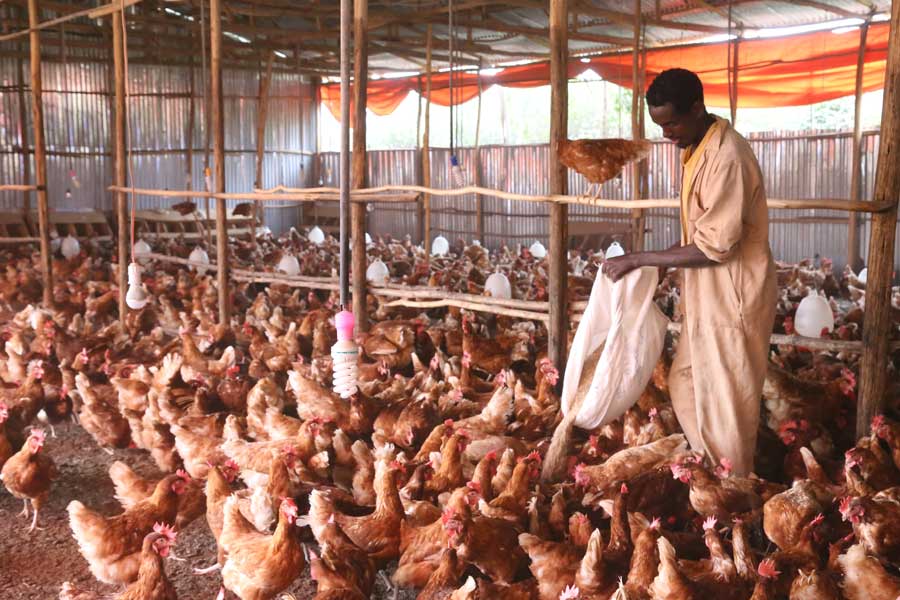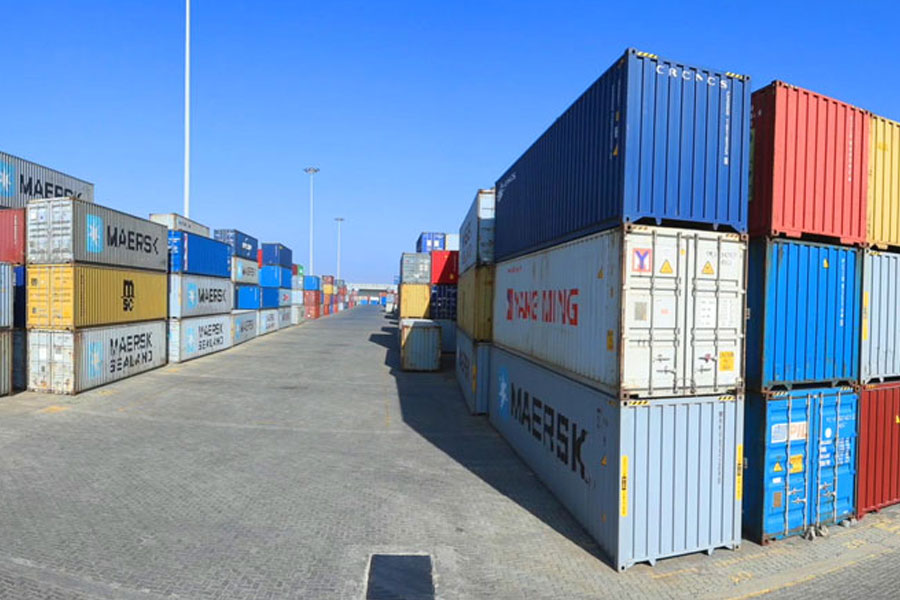
Nov 11 , 2023
By Mekonnen Solomon
The floriculture industry, a relatively nascent but fast-expanding sector, faces considerable challenges that mirror global concerns. However, catalysed by Ethiopia's favourable climate and agri-business potential, it is at a critical juncture where lessons from international experiences are shaping its future trajectory.
The flower business was scrutinised during the 2005 national election campaigns, with many political party leaders opposing floriculture investments. This period marked a turning point, bringing to light the industry's potential pitfalls and prospects. Floriculture has since embarked on a path of learning from global experiences, mainly focusing on the darker aspects of the flower trade. This approach aims to inform better practices and policies to improve the sector's sustainability and competitiveness.
The federal government, recognising the need for sustainable practices, has adopted a code of practice for sustainable flower farming. This initiative is designed to safeguard floriculture's longevity while ensuring local communities' welfare. The code emphasises eco-friendly practices, such as biological control and organic farming. It also fosters collaboration and accountability among key stakeholders – the government, growers, and consumers – particularly concerning the safe use of pesticides, water management, and social justice.
Globally, the floriculture business faces scrutiny for its social, ecological, and economic impacts.
The industry is known for creating employment opportunities, especially for women, but often at the cost of low wages, poor working conditions, and health risks.
Colombia, a leading flower exporter, has seen significant environmental costs, including depleted water tables and toxic pesticide residues. The industry, however, remains a vital economic engine, generating substantial export revenues and providing employment in regions with high unemployment rates.
Kenya, another significant player in the global flower market, mirrors similar challenges. Its floriculture sector is an important contributor to its economy, providing direct and indirect employment to millions. However, recent reports exposed severe exploitation within the industry, including forced labour, high work targets, and gender-based discrimination.
In Ecuador, one of the world's largest flower producers, the industry's success comes with considerable sustainability concerns. The extensive use of synthetic pesticides like glyphosate poses environmental and health risks. While regulated in food production, these chemicals often bypass stringent controls in the flower industry. The sector's high water usage and carbon emissions from refrigeration and transport exacerbate environmental degradation.
These global experiences offer crucial lessons for Ethiopia as it seeks to develop its floriculture sector responsibly. The Ethiopian industry's adoption of sustainable practices and its commitment to social and environmental welfare are steps in the right direction. However, the challenge lies in balancing economic growth with sustainable development. As the industry grows, continuous monitoring and adaptation of practices will be essential to respond to the risks associated with intensive agricultural practices.
The Ethiopian case also shows the importance of international cooperation and knowledge sharing in addressing the challenges of the floriculture industry. As countries like Ethiopia look to established markets for guidance, there is an opportunity for global industry players to collaborate on sustainable practices and fair trade principles. This approach could lead to a more resilient and responsible global floriculture market.
In its early stages, the Ethiopian floriculture industry is at a crucial point where it can learn from the successes and failures of established markets. The path forward involves a delicate balance of economic growth, environmental stewardship, and social responsibility. The global floriculture industry offers a rich experience from which Ethiopia can draw valuable insights. As the industry evolves, it will be critical to focus on sustainability to ensure that the beautiful blooms of the floriculture sector do not come at an untenable cost to people and the planet.
PUBLISHED ON
Nov 11,2023 [ VOL
24 , NO
1228]


Radar | Mar 11,2024

Fortune News | Jul 13,2020

Commentaries | Oct 15,2022

Fortune News | Jul 25,2020

Commentaries | Jul 10,2021

View From Arada | May 31,2025

Fortune News | Sep 24,2022

Fortune News | Jun 04,2022

Commentaries | Aug 18,2024

Fortune News | Feb 23,2019

My Opinion | 131661 Views | Aug 14,2021

My Opinion | 128023 Views | Aug 21,2021

My Opinion | 125986 Views | Sep 10,2021

My Opinion | 123610 Views | Aug 07,2021

Dec 22 , 2024 . By TIZITA SHEWAFERAW
Charged with transforming colossal state-owned enterprises into modern and competitiv...

Aug 18 , 2024 . By AKSAH ITALO
Although predictable Yonas Zerihun's job in the ride-hailing service is not immune to...

Jul 28 , 2024 . By TIZITA SHEWAFERAW
Unhabitual, perhaps too many, Samuel Gebreyohannes, 38, used to occasionally enjoy a couple of beers at breakfast. However, he recently swit...

Jul 13 , 2024 . By AKSAH ITALO
Investors who rely on tractors, trucks, and field vehicles for commuting, transporting commodities, and f...

Jun 28 , 2025
Meseret Damtie, the assertive auditor general, has never been shy about naming names...

Jun 21 , 2025
A well-worn adage says, “Budget is not destiny, but it is direction.” Examining t...

Jun 14 , 2025
Yet again, the Horn of Africa is bracing for trouble. A region already frayed by wars...

Jun 7 , 2025
Few promises shine brighter in Addis Abeba than the pledge of a roof for every family...

Jun 29 , 2025
Addis Abeba's first rains have coincided with a sweeping rise in private school tuition, prompting the city's education...

Jun 29 , 2025 . By BEZAWIT HULUAGER
Central Bank Governor Mamo Mihretu claimed a bold reconfiguration of monetary policy...

Jun 29 , 2025 . By BEZAWIT HULUAGER
The federal government is betting on a sweeping overhaul of the driver licensing regi...

Jun 29 , 2025 . By NAHOM AYELE
Gadaa Bank has listed 1.2 million shares on the Ethiopian Securities Exchange (ESX),...